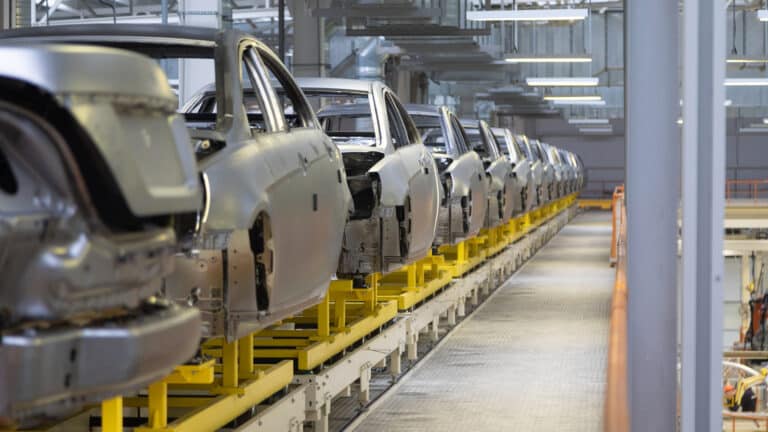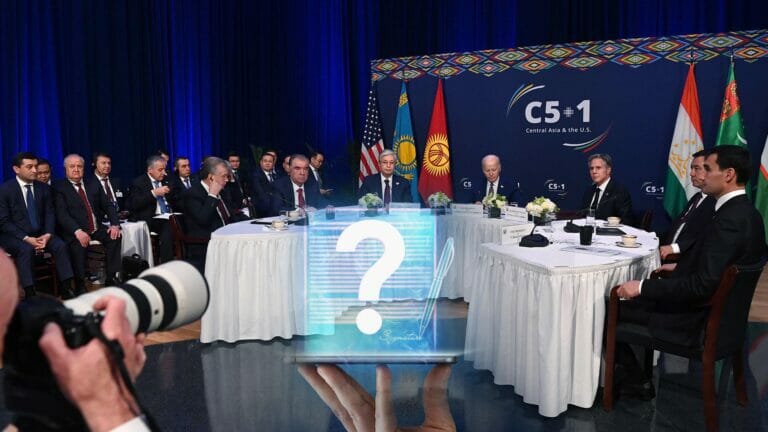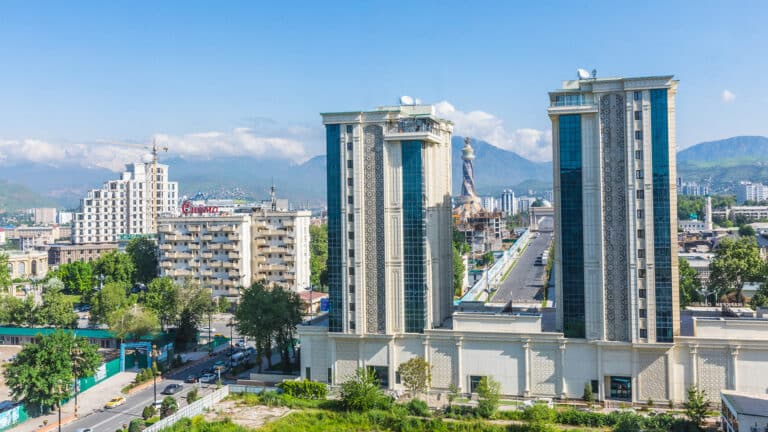
SANTO, one of the leading pharmaceutical businesses in Kazakhstan and part of the international group Polpharma Group, is about to become the first pharmaceutical company in Kazakhstan certified under European GMP standards. According to CEO of SANTO Adam Aleksiejuk, once this happens, it will have a positive effect throughout Kazakhstan.
You haven’t been working in Kazakhstan very long; what opinion have you developed about the pharmaceutical market in the country?
First of all, it is obvious that Kazakhstan has gained momentum thanks to its geographical location at the crossroads between South East Asia, the Middle East, China, Russia and Europe. This factor has played a crucial role since ancient times. These days, it also helps Kazakhstanis gain access to a wide range of essential medicines.
We have to remember that 80% to 85% of patients in the country are treated with the help of essential medicines in the form of generic drugs affordable for the broad population. This is why I believe that the role of the pharmaceutical industry in the country is growing. On the one hand, Kazakhstan can provide its broad population with essential medicines. On the other hand, the country has everything needed to become a large producer of drugs for customers not only in Central Asia but throughout the world.
What is the role of SANTO in this process?
You know, Jerzy Starak, the founder of Polpharma Group, has the special gift of seeing potential in different countries. Many years ago, he managed to see such potential in Kazakhstan as well and we currently can say that he was right. When we acquired the SANTO factory in Shymkent in 2011, it was a complex of quite old buildings and manufacturing lines. Over the past 12 years, we have invested more than $108 million in this factory; in fact, we’ve built a new manufacturing site, the biggest in Central Asia. Within the next 2.5 years, we are going to invest an additional €20 million in the site under arrangements with the Ministry of Health of Kazakhstan. Our goal is to reach the maximum rate of manufacturing quality and obtain the status of the first pharmaceutical manufacturer in the region certified by EU GMP standards.
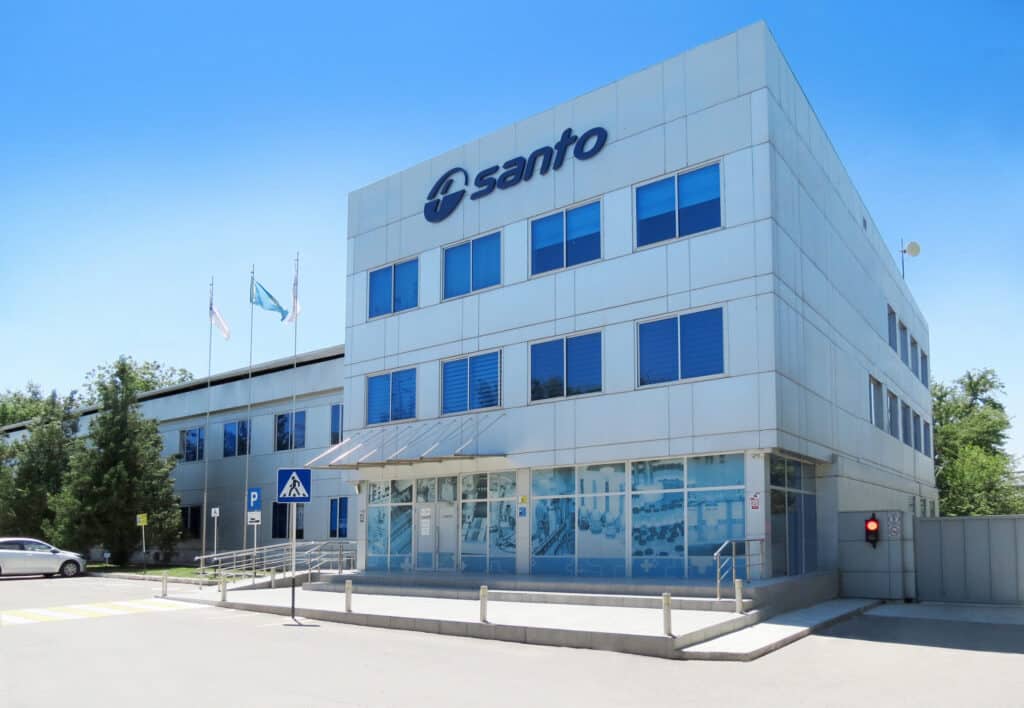
It will let us produce high-quality medicines under international standards here in Kazakhstan and will open foreign markets for our products. In other words, once we are certified by EU GMP, we will be able to export our products not only to Kyrgyzstan or Uzbekistan but to all EU member states and any other countries that look up to EU standards in health care. It is going to be a real landmark turning point. Everything necessary for the move is almost done. For instance, we are finishing the construction of an advanced QC lab and an R&D center, which will meet the highest international standards. The certification process is scheduled for Q4 next year, and in Q1 or Q2 of 2025, SANTO is expected to be the first pharmaceutical business in Kazakhstan certified by EU GMP standards.
Moreover, we have to remember that such certification will have a positive effect on the entire country. First of all, we will be able to export our products to new markets, which is very good for the country’s economy, the further development of the company’s potential and all our employees. On the other hand, stiff requirements for the quality of products will propel Kazakhstan’s pharmaceutical industry to the next level and secure access to a wide range of high-quality medicines within the country. In other words, the more viable we are on the global market, the more benefits we can give Kazakhstan.
Do you mean the expansion of local pharmaceutical production by European standards?
Exactly. If someone imports ready-to-use products manufactured in a foreign country, packages them and then puts them on sale this is not localization. If you have a pharmaceutical manufacturing site, you should also have APIs (active pharmaceutical ingredients), packaging materials and equipment necessary for manufacturing. You have to stockpile these materials to stay prepared for changing needs. This is what I call localization.
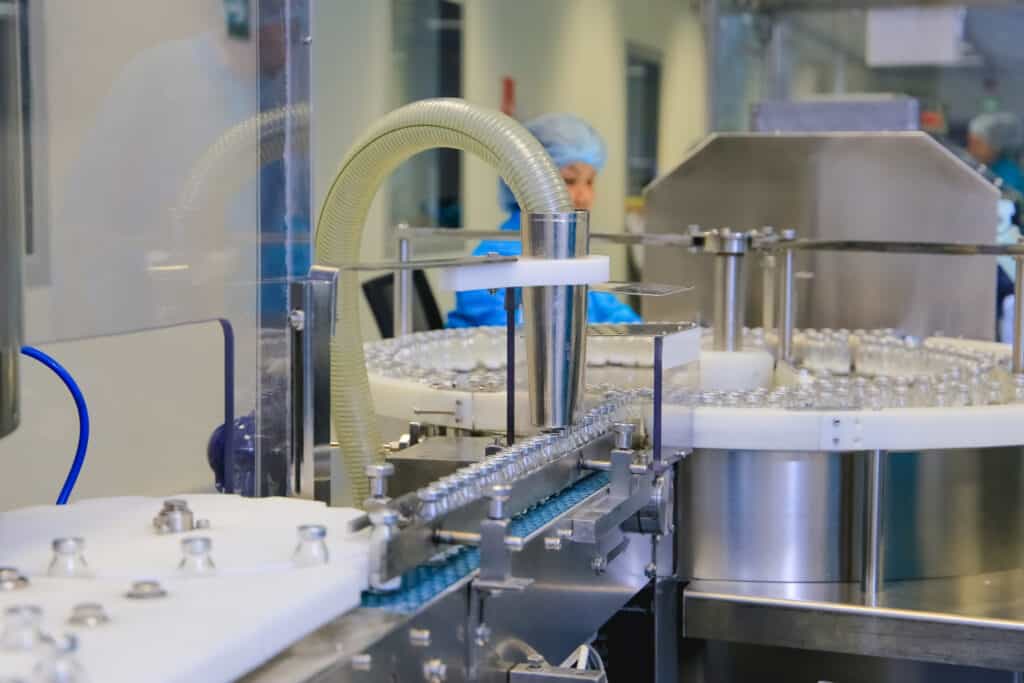
In SANTO, we have such a stockpile of APIs and we can adjust to the changing needs of the market very fast. Moreover, we are ready to boost production and adjust our production schedule if we see a spike in demand, let’s say for Azithromycin, Cefazolin or any other essential medicines. We can also increase the production of cold and cough medicines, for example, if we see growing demand for such pharmacy staples. We must be prepared to boost our production to fill the needs of customers in medicines whenever it is necessary.
Has the COVID-19 pandemic or the current spike in measles cases affected this strategy of localization?
After the COVID-19 pandemic, there is absolutely no doubt about the necessity of having a pharmaceutical manufacturing site within the country. For example, thanks to our factory in Shymkent, SANTO has played a crucial role in providing Kazakhstanis with access to essential medicines and other important drugs during the pandemic. Now, we are dealing with the outbreak of measles, which is spreading faster than many experts thought. This outbreak was unexpected because the health authorities reported a record-low rate of the disease in Kazakhstan in October and then the number of measles cases sharply increased in November and December. Whenever this happens, you must be ready to take rapid action to ensure patients have access to essential medicines. This is a pretty good answer to a question about why someone would need a local pharmaceutical factory.
Is the government of Kazakhstan on the same page with SANTO?
In the battle against massive outbreaks, the pharmaceutical industry and governments are allies, they are the partners. And this cooperation is supposed to last many many years because you never know when a COVID pandemic or any other outbreak would emerge, but you know for sure that this is going to happen one day. As a pharmaceutical company, we have to be ready to meet the needs of the government in the case of an epidemic. That is why the government of Kazakhstan has been aligned with the good strategy of centralized procurement of medicines. I think it’s safe to say that currently, public support of local pharmaceutical manufacturing in Kazakhstan is a real thing. We are effectively cooperating with the Ministry of Health and SK Pharmacy which both know how important it is to support the local pharmaceutical manufacturing business.
In turn, as of Q4 of 2023, we did our best to provide people in Kazakhstan with access to all our products, including antibiotics. If the epidemiological situation with measles persists in the first quarter of next year, we’ll probably talk to the authorized agencies and revise our production plans. Anyway, I can say that there is a complete understanding between the government and the pharma industry. They are both ready to take any action necessary to ensure free access to essential cardiological medicines like Eplerenone, Torasemide and Ezetimibe because many patients take these pills all the time to support their day-to-day lifestyle and ability to work.
In Kazakhstan, many people still believe that drugs domestically produced are of lower quality than foreign medicines. Have you noticed such a stereotype here?
I’ve been working and living in Kazakhstan for five months now and indeed I’ve noticed that some Kazakhstanis consider drugs made in the country lower in quality compared to medicines produced abroad.
I believe that Kazakhstanis can be proud of products made in Kazakhstan. Of course, there are some low-quality goods in the market as well as some producers that do not follow high standards. However, when it comes to the pharma industry, the situation is different.
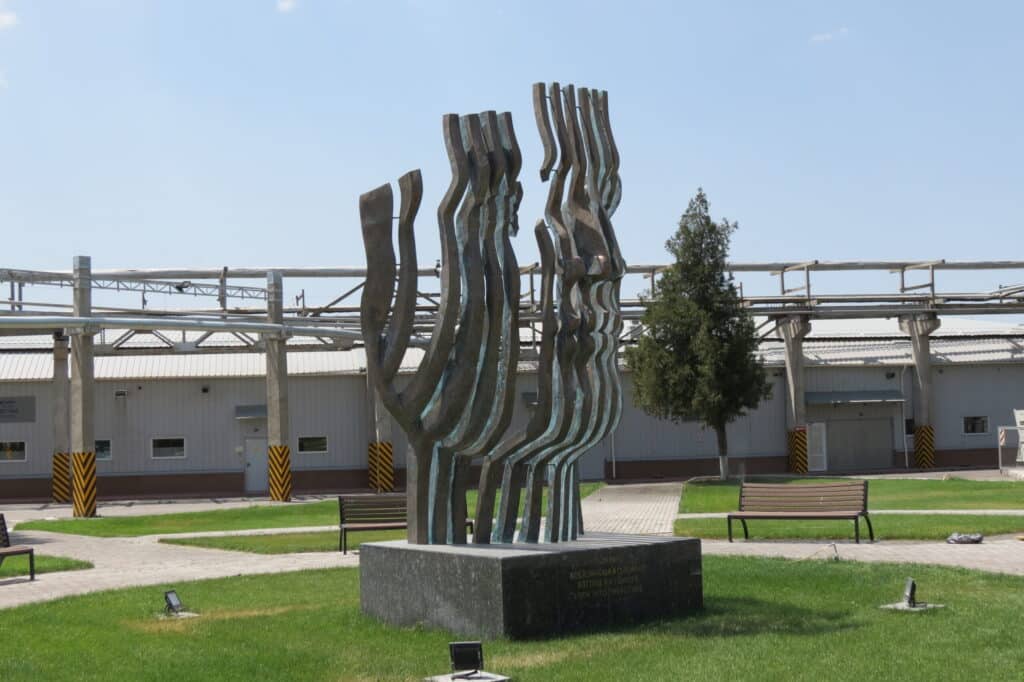
As you know, we are part of Polpharma Group which is already certified in Europe. Not long ago, we invited representatives from the Polish factory to visit Shymkent and conduct a kind of rehearsal of an EU GMP certification. It wasn’t an official procedure, of course, but we needed it to see whether we were ready for such a certification. We have certainly passed the examination. If you ask me whether we can produce products under EU GMP standards, I’d say yes. Is our factory already certified? Not yet, but I am sure this is just a matter of time.
We are ready to compete with any pharma business from Europe and we will prove soon that our medicines are as high-quality as drugs made in Germany, Poland or anywhere else in Europe. I am also sure that our products are going to have competitive prices. This is very important as well.
So, is the raising of manufacturing standards in Kazakhstan part of SANTO’s business strategy?
Absolutely. Kazakhstan is a massive country with a population of just 20 million people. If you look at leading global manufacturers, they usually run a few factories focused on the global market. This is why we want to have a manufacturing site here in Kazakhstan to meet the needs of the local market and to export a surplus of our products abroad. In this case, we will be able to guarantee the high quality of our products and produce enough medicines to export them to the global market.
We need to remember that it isn’t an easy task to reach high quality in the pharmaceutical industry. Pursuing this goal requires a lot of investments, which is why we need state support. This process can take five or even ten years, but once it finishes, the government will be confident that whatever outbreak emerges, the foreign investor that has put tons of money into its local business won’t leave the country. These investments will stay in Kazakhstan along with all the manufacturing lines and the high quality that the investor is pursuing now. What is even more important is that Kazakhstani citizens will obtain all the necessary skills and knowledge and will be able to pass this expertise to their fellow citizens.
Take a look at countries that are competing with Kazakhstan like Russia and Belarus, which subsidize 50% to 100% of investments in the localization of pharma. Such support plays a big role because an investor has to invest money now and wait for years for the first results to come. On the other hand, when a government supports the localization of pharma manufacturing, it will strengthen the medicine security of the entire country. Moreover, any large-scale manufacturing creates new jobs. For instance, SANTO provides jobs for 1,300 employees and pays taxes to the state budget of Kazakhstan. All these factors combined make the country more sustainable.
You said that SANTO invested more than $108 million in its Shymkent factory over the past several years. Is that process close to a logical end?
The vast majority of investments in establishing necessary manufacturing sites in Kazakhstan, in the construction of buildings, all-factory infrastructure and manufacturing lines have already been completed. Currently, we are finishing the construction of our quality control laboratory and the research and development center. We have invested €12 million in these two facilities. These two projects are at their final stage. We are expecting their certification in the third quarter of 2024.
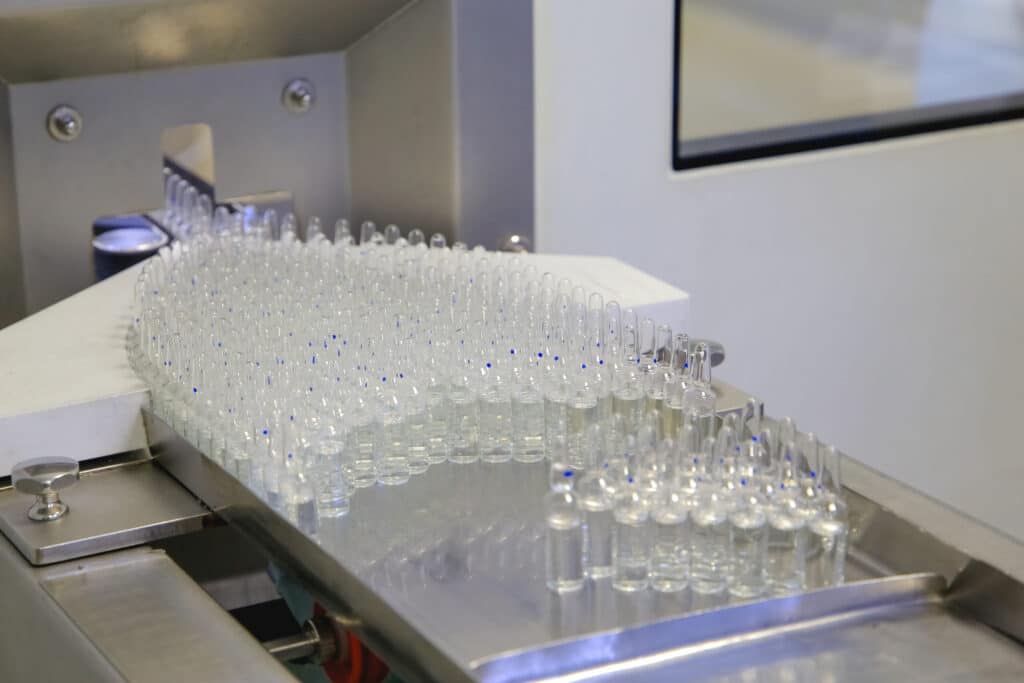
All other elements of our strategy have been fully realized. I mean, we are in the final lap toward achieving certification under the EU GMP standard. The readiness rate is about 85% to 90% by now. Once everything is done, we will be able to expand our production capabilities and go beyond antibiotics and cardiological medicines, a sphere where our positions are quite strong. We will enter new segments such as oncology, neurology and hormone production. We are eager to expand our capabilities in different therapeutic areas to ensure patients in Kazakhstan have access to high-quality and certified medicines produced domestically.
It is worth noting that we are developing our portfolio not only in knowledge-intensive areas related to oncology and cardiology but also in less complex drugs that are very popular in Kazakhstan. For example, in November, we launched the production of Mucaltin in the form of anti-cough syrup for children and the antivirus drug Ibuvir in the form of pills.
What about the supply chains of SANTO; are they reliable enough? After the pandemic, we all know that logistics can be an Achilles heel for almost any business.
Any pharmaceutical manufacturing would require access to APIs. I am not aware of any company in Kazakhstan that produces such active ingredients. To launch production of APIs here in the country, hundreds of millions of dollars would be required. This is not necessary at all. As I mentioned before, Kazakhstan has a very beneficial geographic location at the crossroads between Europe, China, India and South East Asia, where API production sites already exist. I think there is no need to put an additional financial burden on Kazakhstani customers.
Regarding lessons we have learned from the pandemic, I can say that apart from price and quality, the reliability of supplies is the most important thing for the pharma industry. That is why we want to have a backup plan for supplies of each active ingredient. If something like the pandemic happens, we will be competing with many other markets all over the world, including the U.S. and Europe, where pharma would pay much more for the same active ingredients. Of course, we would face many difficulties in such a situation. Therefore, we must have reserves of each ingredient we need. We also need a proper production planning system. However, given that we are part of Polpharma which runs its production of APIs, SANTO is confident that in a critical moment, we would receive everything we need for pharmaceutical manufacturing. I hope that nothing even close to the COVID-19 pandemic will happen ever again, but no one can guarantee that. What I can guarantee is that SANTO will be ready to take rapid action and stay with Kazakhstanis to the end of any potential outbreak.








